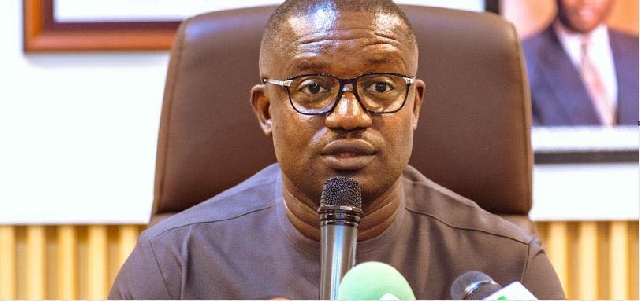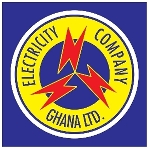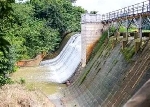We inherited over US$ 1.7 billion debt owed to IPPs: Energy Minister
 John Jinapor
John Jinapor
The Minister for Energy and Green Transition, Mr. John Abdulai Jinapor, has delivered a powerful address at the Government Accountability Series, outlining significant reforms and milestones achieved within Ghana’s energy sector in just six months of the new administration.
Speaking at the event hosted by the Ministry of Government Communications, Mr. Jinapor detailed the dire state of the energy sector when the Mahama-led government assumed office in January 2025, citing deep-rooted challenges such as massive power sector debts, declining petroleum reserves, and energy infrastructure decay.
“When we took office, we inherited over US$ 1.7 billion owed to Independent Power Producers (IPPs), a GHS 80 billion sector debt, and a power deficit that peaked at 720MW in December 2024.
Fuel stocks were critically low, and IPPs were on the verge of shutting down operations,” he said.
In the petroleum sub-sector, crude oil production had declined for five consecutive years, dropping from 71.44 million barrels in 2019 to 48.25 million barrels in 2024, due to policy uncertainty and dwindling investor confidence.
However, Mr. Jinapor noted that these challenges provided the government with an opportunity to reset Ghana’s energy trajectory through strategic reforms and investments.
The Minister presented a wide-ranging overview of initiatives undertaken by the Ministry of Energy and Green Transition, with a strong focus on sustainability, local content, and innovation:
1. Renewable Energy Expansion
Ghana Scaling-up Renewable Energy Programme (SREP) was launched on May 30, 2025, backed by an $85 million grant from AfDB, CIF, SECO, and the Government of Ghana.
Targets include deploying 12,000 net-metered solar PV systems, building 35 mini grids for over 70,000 people, and distributing 1,450 solar home systems to off-grid communities.
2. Major Solar Projects
Development of 200MW of solar capacity underway nationwide.
Construction of a 25MW floating solar plant at the Bui Hydropower Station and a 30MW facility at Kpong Reservoir by VRA, with funding support from KfW.
3. Local Content and Training
Collaboration with the International Solar Alliance (ISA) to train Ghanaians in solar energy technology.
Ghana will host the 7th Africa Regional Committee Meeting of ISA in September 2025, chaired by Mr. Jinapor as Vice President of the body.
4. Renewable Energy Authority (REA)
A draft bill for the establishment of the REA is undergoing technical review and will be laid before Parliament before year-end.
5. New Green Transition Fund
Creation of the Renewable Energy and Green Transition Fund to attract public and private investments into sustainable energy initiatives.
6. Mini Grid Commissions
Commissioned three new mini grids in Azizakpe, Aflive, and Alorkpem, delivering clean power to over 3,700 residents in Ada.
7. Clean Cooking Access
Roll-out of 450,000 LPG stoves under the Cylinder Recirculation Model, in partnership with the World Bank, to increase clean cooking solutions.
8. Smart Street Lighting Initiative
Deployment of 23,500 all-in-one solar street lights to illuminate 700km of road networks nationwide.
9. "Government Goes Solar" Project
Installation of 22MW of solar capacity across public institutions including universities, ministries, and agencies—expected to save the government GHS 52 million annually over 20 years.
10. Electric Vehicles Rollout
The government begins deployment of EVs and solar-powered charging stations, starting with government agencies. A pilot station has already been commissioned at the Energy Commission.
11. Nuclear Power Progress
Ghana’s Nuclear Power Programme has reached Phase 2 of the IAEA milestone approach, with the Ministry advancing vendor selection for the first nuclear power plant.
12. Energy Transition Strategy
Development of a five-year strategic document to guide Ghana’s transition to a low-carbon and energy-resilient future.
Mr. Jinapor stressed that under President Mahama’s leadership, the government is committed to transforming Ghana’s energy sector into a reliable engine of economic growth, industrialisation, and social progress, while positioning the country as a leader in Africa’s green energy transition.
“We are not just solving problems. We are resetting Ghana’s energy future for resilience, equity, and sustainability,” he concluded.
Source: Classfmonline.com/Cecil Mensah
Trending News

10,000 National Service Personnel to begin training under new emergency response programme – Defence Minister reveals
09:34
Our foundation and strength lie in building a diverse party – Bawumia
15:25
Concerned Small Scale Miners President refutes claims of interference in anti-galamsey operations, accuses journalist Erastus Donkor of misrepresentation
19:59
Volta Region explores youth empowerment partnership with Italian NGO aimed at SOS Europa digital literacy
14:10
Private security guards appeal for Inclusion in the 24-Hour Economy programme
09:20
Let's stop the internal attacks now - Bawumia to NPP faithful
15:13
‘No peace without justice’: Edem Agbana urges national reckoning on electoral violence
19:13
ECG Launches Aggressive Revenue Drive in Volta and Oti Regions with “Operation All Must Pay”
13:54
A/R: Barekese Water Treatment Plant to shut down temporarily for ECG maintenance
09:12
With unity and consistency, we can regain the trust of Ghanaians - Bawumia to NPP
17:28



